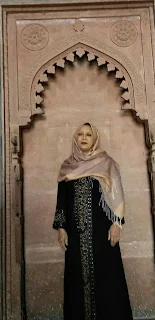"For them (i.e. the friends
of God Almighty) are glad tidings in this life (through revelation and converse
with Allah) and will also have the same experience in the hereafter." (Yunus, 10: 65)
It should be kept well in mind that revelation
does not mean that an idea should arise in the mind of a person who sets
himself to ponder over a thing as, for instance, a poet having thought out half
a verse seeks the other half in his mind and his mind suggests the other half. This
is not revelation but is the result of reflection, in accordance with the law
of nature. When a person reflects upon something good or bad, a corresponding idea
arises in his mind. For instance, one person who is pious and truthful composes
verses in support of truth, and another one, who is wicked and vicious,
supports falsehood in his verses and abuses the righteous.
 So, if the arising of an idea in the mind
should be accounted as revelation, a vile poet who is the enemy of truth and of
the righteous and writes in opposition to the truth and has recourse to
imposture, would be called a recipient of divine revelation. Many novels are
written in excellent style and set forth altogether false but continuous well
arranged tales. Then would these stories be designated as revelation?
So, if the arising of an idea in the mind
should be accounted as revelation, a vile poet who is the enemy of truth and of
the righteous and writes in opposition to the truth and has recourse to
imposture, would be called a recipient of divine revelation. Many novels are
written in excellent style and set forth altogether false but continuous well
arranged tales. Then would these stories be designated as revelation?
If revelation were to mean merely an idea
arising in one’s mind, a thief would also be called a recipient of revelation,
for an expert thief often thinks out surprising ways of theft and robbery, and
many clever plans of robbery and murder pass through his mind. Would all these
unclean projects be called revelation? Indeed not. Such is the thinking only of
those who are not aware of the true God Who comforts the hearts of His servants
with His converse and bestows the understanding of spiritual knowledge upon those
who are not familiar with it.
What then is revelation?
It is the living and powerful converse of the Holy and Mighty God with a chosen
servant of His, or with one whom He designs to make His elect. When this
converse starts in an adequate and satisfactory manner, being altogether free
from the darkness of false concepts, and is not composed merely of a few inadequate
and meaningless words, and is full of delight and wisdom and grandeur, then it
surely is the word of God with which He designs to comfort His servant and to
manifest Himself to him.





